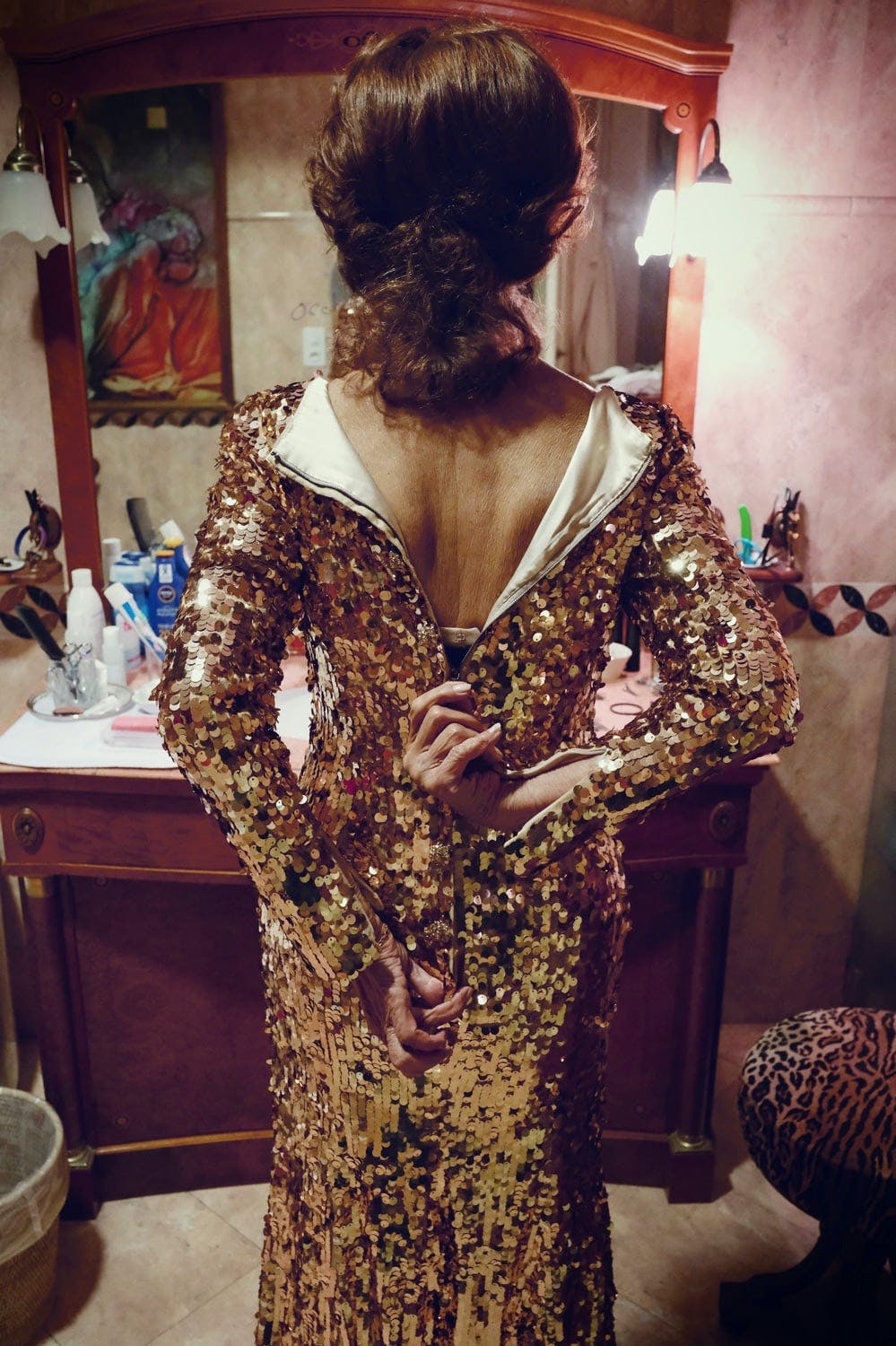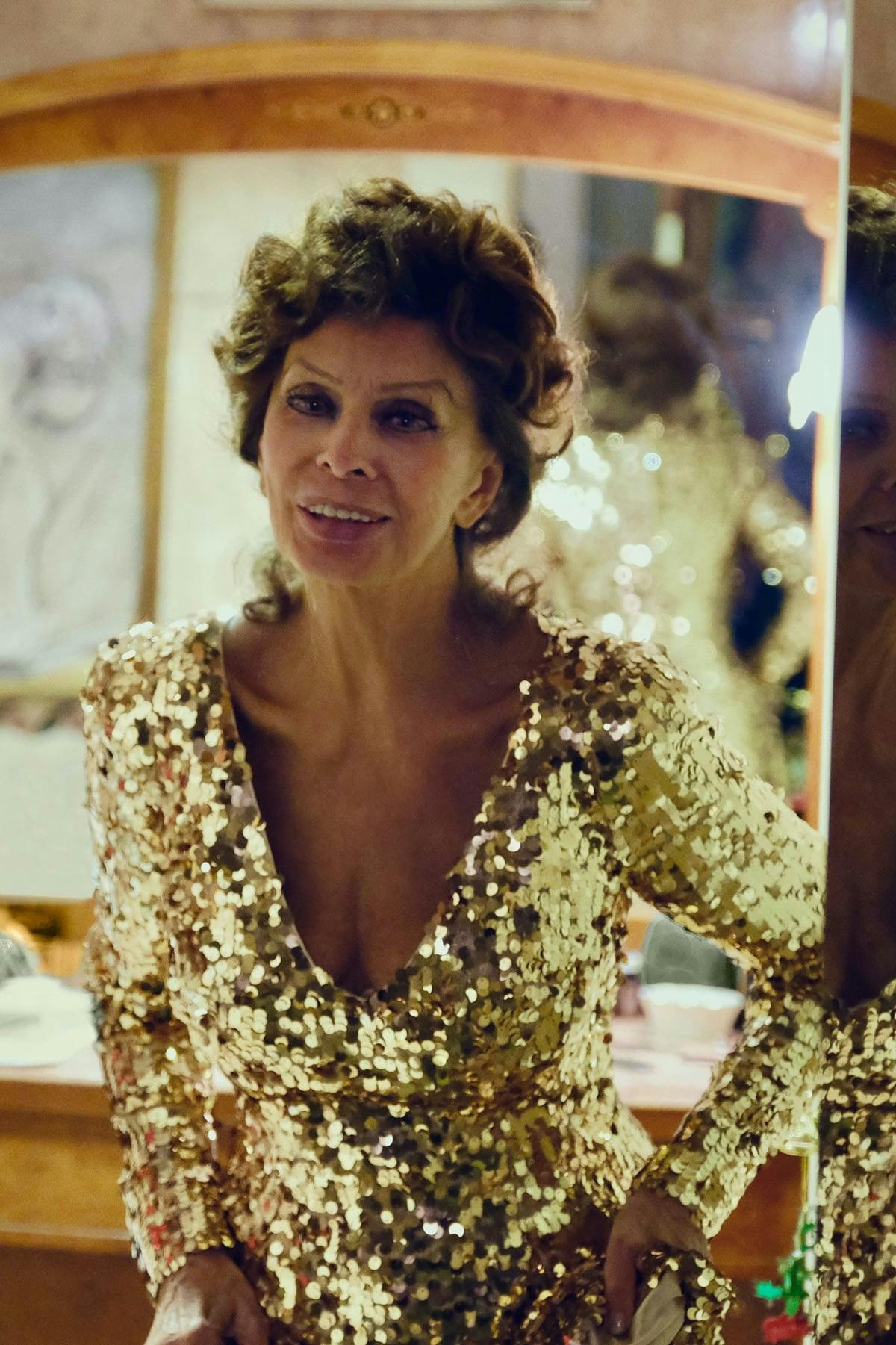
But She Never Really Left
“If you haven’t heard of Sophia Loren, you are from another planet, or you’re very young and still have lots to learn.” That’s according to industry idol Isabella Rossellini, who recently joined Loren and her son Edoardo Ponti in a conversation about the pair’s new film, La vita davanti a sé (The Life Ahead).
Across a lifetime of legendary work, Loren has won two Oscars, five Golden Globes, a BAFTA, a Grammy, and honors from the Venice, Cannes, and Berlin film festivals. She has worked with Italian masters Vittorio De Sica and Ettore Scola; with the likes of Charlie Chaplin, Sidney Lumet, and Robert Altman; with Marcello Mastroianni, Marlon Brando, and Cary Grant.
Now, back in a feature performance for the first time in a decade, she once again arrives to the Oscars conversation — this time in a project directed by her son. Adapted from a novel by Romain Gary, La vita davanti a sé follows the unexpected bond that forms between Madame Rosa (Loren), a neighborhood caretaker and Holocaust survivor, and Momo (newcomer Ibrahima Gueye), the 12-year-old Senegalese Italian orphan whom she reluctantly takes in.
It’s the third collaboration between Loren and Ponti (following 2002’s Between Strangers and the 2014 short film Voce umana), and it’s unlikely to be the last. “I don’t think I’m going to stop,” Loren vows. “I will be forever. Forever.”
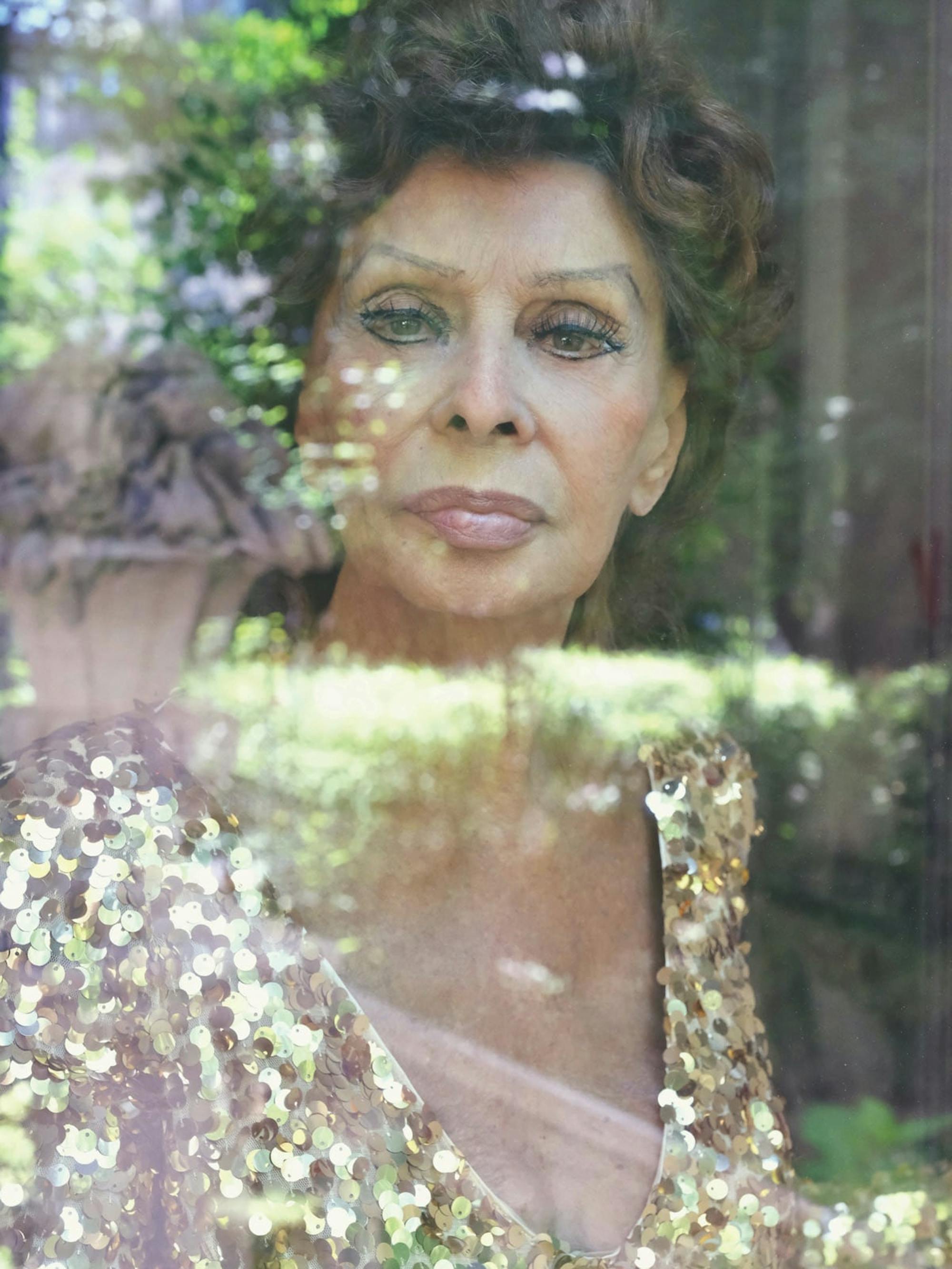
Sophia Loren in Armani
Herself the daughter of a Golden Age star and a pioneering neorealist director, Rossellini introduced Loren and Ponti in a conversation hosted by the American Film Institute: “My dream would have been to work with my mother, Ingrid Bergman, and my father, Roberto Rossellini. I am incredibly envious of Edoardo’s generosity, the way he is attentive, and the way he has learned from his mother. Here is my talk with them.”
I adore working with my son. I want to work with my son always, always.
Sophia Loren
Isabella Rossellini: As I grew up, Italian women were not seen as role models. Sophia, you showed us that the Italian woman was a woman with great pride, who held the family together.
Sophia Loren: I always tried to be like my own mother. She was really wonderful. She was strong. She was an incredible woman. That’s what my aim in life was: to be like my mother. She was a big idol for me.
You made a film [Sophia Loren: Her Own Story (1980)] where you played your mother. Here, you play this woman who has such pain in her heart. She’s a Holocaust survivor. And you thought of your mother when you played this role?
SL: Yes. Madame Rosa had the same fragility and the same kind of feeling as my mother, absolutely. My mother suffered very much through the war. She never wanted to talk about it, but she would always say even though she was scared to death, she was always with us. She was really going through terrible things, going through the bombings, going through the war that we had in Naples — every night, every night, every night.
Did you work together on this script?
SL: Oh, no, no, no. We don’t work together on the script, but we don’t need to, because he’s my son and he knows me very well. He knows what I can do to be able to have a wonderful time and to be able to really describe this character in a wonderful way. I adore working with my son. I want to work with my son always, always.
Edoardo Ponti: I made my first attempt at screenwriting when I was 15, and I gave the script to my mother. She had the kindness to tell me the truth, and she told me, “It’s good, but you know what’s lacking? The lead is lacking great moments for her to act.” Ever since she told me that, everything I’ve written, I’ve always thought about that. I’ve always tried to give the actors I work with great moments.
Sometimes, when you work with somebody like my mother or actors that have had a long legacy, they’ve really acted most of the moments in life. In this movie, I wanted to find things that she had never done, to approach certain circumstances with a complete freshness, with a complete spontaneity. I hope that we see a Sophia Loren that, of course, we’re very familiar with — because she always has the authenticity and the vitality that we know — but also that we see other parts of her in her performance that are new or have been deepened by her experience in life. So, did I work with my mother on the screenplay? No. But was my mother an influence because of what she told me when I was 15 years old? Absolutely.
I think this ability to work within the family might be very Italian.
EP: Yeah. I think more than an art, cinema is a craft. It’s a little bit like when you see legacies in shoemakers or even electricians: Filmmaking is an artistic craft. It is something that is passed on like those other things.
SL: A legacy.
EP: Exactly. We are steeped in it. If we start thinking we’re doing something very artistic, we are going to fail. All we have to do right now is tell a story and be as authentic as possible while telling that story. If that works out, then we will move people, we will entertain people and hopefully also make people think, inspire people. One day, when we’re all long gone, somebody might say, “This piece was also a piece of art.” But that’s not our ambition, our intention. Our intention is to tell a beautiful story.
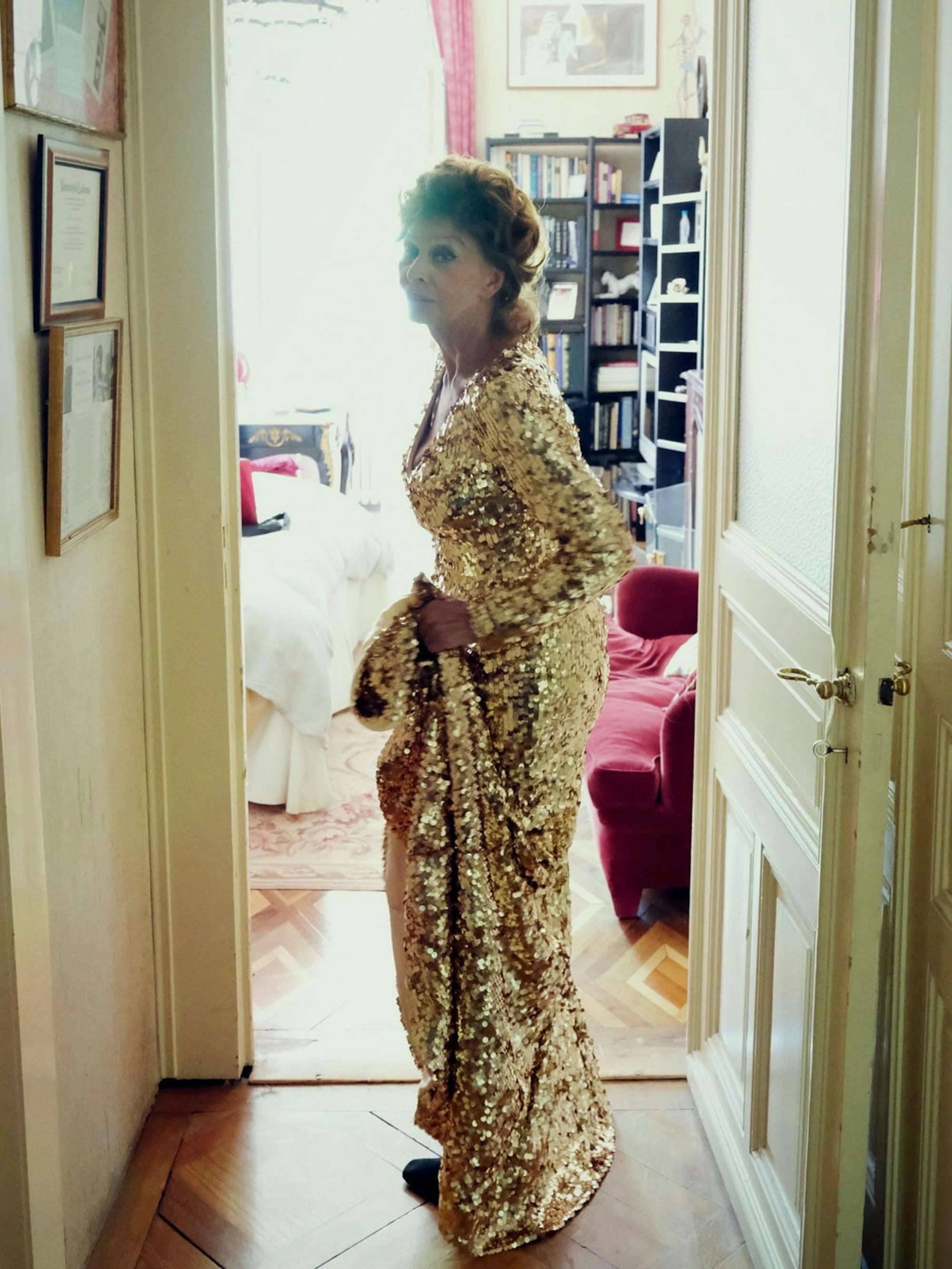
Were you often on the set with your father and your mother? I loved being on the set when I was a little girl.
EP: My family actually made an effort to protect us from the set. They were very much into the desire to create a family home and an environment that was as grounded as possible. If we had the opportunity to go on set because a movie coincided with the summer, then we were on set. If not, we had to go to school, do our homework. But when I did go on set, it was magical. What I loved was driving up to the set. Very far away, you saw these lights. It looked like you were about to enter this magical dimension, a little bit like Oz when you’re walking down the yellow brick road.
SL: I never knew that.
EP: I would get these butterflies in my stomach, which were a mixture of anxiety, of excitement, a little bit like falling in love. It was that same feeling. And then, seeing my mother work, seeing the concentration . . . What’s amazing about my mother is she takes nothing for granted, and she approaches every movie like it is her first. There is not one jaded bone in her body. She gives everything to everything she does.
SL: I try to.
Can I ask you about the young boy in the film who plays Momo?
EP: Yes, Ibrahima. He’s from Senegal. He had arrived in Italy five years prior. Casting the roles of the movie, especially Momo, it was very important for me to surround my mother with authentic characters who had lived those experiences. So, when we cast the net to find Momo, the two things to me that were very important were that the boy was a real immigrant who had experienced what it meant to come from another country into Italy, and he had to be Muslim, because it was very important that he understood that culture and what it meant to him. We looked at around 300, 350 children, but as fate would have it, he was the first one I saw.
I kept thinking of that first child who had come in, who had so much heart, who had so much soul. He had never acted in his life. He showed up at the audition, and he did something that caught my eye. He was supposed to enter the room and sell me candlesticks like he had stolen them. It was an improv session. As he tried to walk into the room, the door got stuck, and he couldn’t get in. Instead of stopping the scene, he used it in the audition. He pushed the door, and to the casting director who was doing the scene opposite him, he started improvising: “You ought to fix that door.” He had these creative instincts that were amazing.
When I hear you talk, I hear my father’s voice. The way that neorealism cast, my father would work with exceptional actresses, like my mother or Anna Magnani, but then he would surround them with non-actors. Sophia, you could speak better than I can about neorealism and all your incredible collaboration with Vittorio De Sica.
SL: De Sica liked to work with non-actors because maybe he didn’t have good thoughts about actors — I don’t know. When he saw me — I was 17 years old, 16 years old for The Gold of Naples — he asked me if I had gone to school, if I had learned many things. I said, “No, no, no, because the war treated us terribly. Actually, we don’t even know how to write.” He said, “That’s O.K., that’s O.K. We start shooting tomorrow morning.” Mama mia! Tomorrow morning! What are you talking about? “We give you the script, and anyway, you can invent things, you can say anything you want to, because you are a little girl of the public, of the street. And you are beautiful, so anything you say is wonderful.”
The encounter with Vittorio De Sica was for me the encounter of a lifetime because he taught me so many things. He was so nice to me. We did so many things together, and he was always so happy for the things I was giving him in acting. I was really amazed. De Sica was congratulating me on what I was doing in pictures with him as a director. It was incredible.
I made my first attempt at screenwriting when I was 15, and I gave the script to my mother.
Edooardo Ponti
How do you establish a relationship between an actor who knows how to enter a character and somebody like Ibrahima?
SL: I had to take care of Ibrahima in the film. It’s not that he was lost — no, no, no. He’s a strong guy. But it was his first opportunity to be in a picture, to see a camera, to see people who are just looking at him. So it was very hard, but I think he liked very much the emotion around the camera, the emotion with the people, being filmed.
EP: When working with non-actors, the challenge is to make sure that the non-actor — or the actor starting out — and the actor who has, like my mother, 120 movies under her belt, to make sure that when they work together, they allow themselves to reach a level of authenticity and presence that is similar, so that tonally, the movie doesn’t feel like it’s one movie when I cut to him and one movie when I cut to her.
Once I cast Ibrahima, I put him through an acting workshop for a month. I never wanted to change who he was. I just wanted to give him the tools to be able to express himself — whatever he had inside, to be able to use it. The second thing that helped was something that my mother never does but here she felt it was important, and she was absolutely right: to rehearse as much as possible those first scenes where he was tough with her. I remember in the beginning it didn’t come naturally to him. He was too reverent toward my mother, too nice. One day, he walked up to my mother during one of the rehearsals and told my mother, “Look, Sophia, I feel bad because every time I tell you these mean things, I go home and I cry.”
SL: He was crying many times.
EP: “I just want to ask your permission to be able to tell you these things so that it comes more easily to me.” My mother said, “Of course you can say them, because we’re acting. It will never offend me if you say all these things, because you’re Momo, I’m Madame Rosa. This is what the scene calls for, so you can absolutely do it.” Once my mother gave him permission to be able to do something that for him as a boy, he felt a little bit shy about, he was the meanest person that you could ever imagine.Imagine once he got the role, imagine once he got home and told his family, “I’m going to be starring in a movie with Sophia Loren.” Imagine the things that people told him about my mother. It was very important for us to be able to humanize my mother in his eyes so that he wouldn’t be looking at an icon. So we came up with the idea of all living together. For over eight weeks.
SL: He came to live with us.
EP: Yes. Throughout the shooting, we all lived in the same house. Sometimes I would catch them just sitting on the sofa watching TV together and talking, just getting to know each other, completely unconnected from the persona that my mother is. It really humanized the relationship. I think that it also allowed them to be able to relate to each other onscreen on another level.
SL: Oh, absolutely
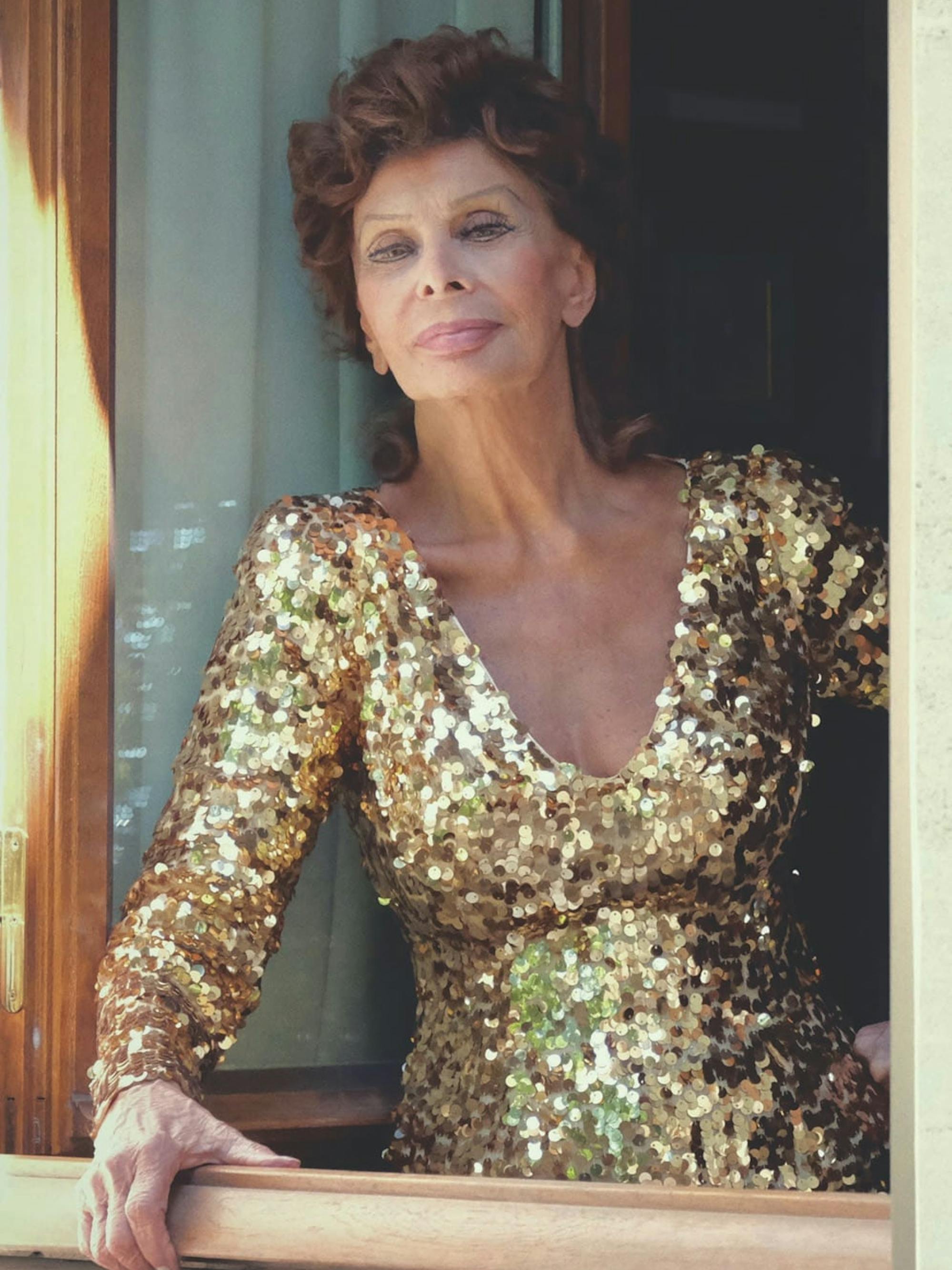
Sophia, you are an icon, but every time I meet you, I immediately see the human being. Do you find that when you meet people you have to wait for that moment when they find the human being?
SL: You have to try to behave yourself. I am a very shy person. I’m accustomed to making films, I’m accustomed to being at home, and that’s all. But once in a while, sometimes, I feel a little not easy — not easy with people, not easy with myself, you know? And I have to overcome that because I don’t like it.
My mama said that she was very shy, but when she was onstage or on the set, she found courage.
SL: I always try to find the moment to be able to be myself and to be able to cope with people and to be able to be a normal person. It’s very difficult to obtain all this at once.
I feel that there is a continuity and a stewardship of Italian art, and I saw in your film this humanity. That is so much a part of me, and especially of my father’s legacy and what he taught me: It’s humanity that counts.
EP: One of the things that attracted me about the book by Romain Gary is that it is told through the point of view of this small, immigrant boy. All too often in this world, immigrants and refugees are treated like second-class citizens. I think that the beginning of empathy is being able to enter the life of another person, to understand what it means to be them. What I love about the book is when you read it, you feel like this 12-year-old boy going through this life. He’s trying to make sense out of having been raised without a family, in the streets.
We need a lot of empathy in this world, especially at this juncture where it seems like everything is tearing us apart, every force is dedicated to separate us. If we can be on the team that tries to join us together a little bit, just a few inches closer than before we started the movie, then that’s a success.
